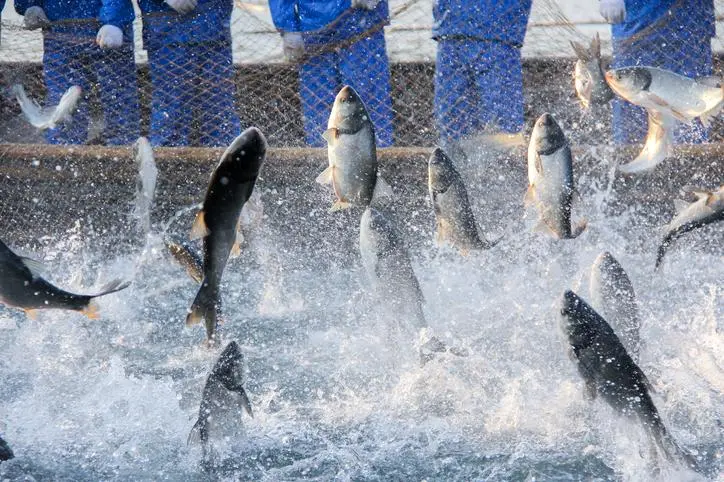PHOTO
Bahrain - Plans are underway to encourage more private fish farms in Bahrain in a bid to halt dwindling fish stocks, revealed a senior government official.
Works, Municipalities Affairs and Urban Planning Ministry Under-Secretary for Agriculture and Marine Resources Dr Nabeel Abu Al Fateh told the GDN that the National Mariculture Centre in Ras Hayyan will be expanded with more plots being made available for onshore farms and four locations designated offshore in the northeast of Bahrain.
Training
He added that 15 Bahraini entrepreneurs are currently being trained by experts from Bahrain and Southeast Asia to prepare them for the new investment opportunities that would be opened.
“Our plans for new closed and open fish farms will be a major boost to the country’s fish stocks and will ensure the availability of local types of fish for a very long time and in large quantities,” said Dr Abu Al Fateh.
“The current centre established in 1979 is of limited space and is fully occupied by our own experts and investors; we had to explore new options.
“The onshore centre will be expanded and four new locations off the northeast of Bahrain have been allocated through the Urban Planning and Development Authority, but the total size or division of plots is yet to be determined.
“It will all depend on how we visualise the need for particular types of fish and the spaces they require to breed.
“We are currently training 15 Bahraini entrepreneurs through our experts and others from Southeast Asia, who are also here to work out investment opportunities, and we don’t know if the investment would be limited to locals or the Bahrainis would enter individually, as a consortium or even in partnership with others interested from elsewhere.”
The official said the concept of fish farming has also seen advancements over the years with Bahrain selecting an approach based on what’s best.
“The idea of whether we should go vertical or horizontal depends on our strategic approach to the marine environment, while ensuring it remains in proper generation and without getting exhausted or even slightly harmed,” explained Dr Abu Al Fateh.
“We want all types of fish that the local community prefers to be on the menu and that could be only achieved with proper supply of healthy and tasty fish.”
Strategy
Bahrain has been significantly affected by declining fish stock, caused by land reclamation, overfishing, increased number of fishing licences awarded and a 30 per cent reduction in fish stock in the GCC since the late 90s.
The GDN reported in August that parliament was studying a proposal to increase investment in fish farms to ensure food safety and replenish stocks.
It aims to create a national strategy for fish farming through a public private partnership to increase the sector’s contribution to the country’s gross domestic product (GDP).
National Action Charter Bloc president MP Mohammed Al Sisi, who is spearheading the proposal, said fish farming will also play a role in reducing the environmental impact of fishing and provide all kinds of fish throughout the year.
He added that the national strategy should have a specific target such as generating an ambitious 10 per cent of GDP from fish farming, which according to 2015 figures stand at 0.32pc from both agriculture and fish farming.
The GDN reported in July that a final feasibility study for a model fish farm project to breed hammour (grouper) has been completed, according to Shaikh Mohammed bin Ahmed Al Khalifa who was Agriculture and Marine Wealth Affairs Under-Secretary at the time.
Shaikh Mohammed, who has been reassigned by Royal Decree as the Municipalities Affairs Under-Secretary, said a hatchery will be set up to produce hammour larvae in addition to large-scale commercial production of the fish.
The 2,600sqm farm aims to produce 54 tonnes of hammour by early 2022 and train Bahrainis on large-scale production of up to 60kg per cubic metre.
© Copyright 2019 www.gdnonline.com
Copyright 2019 Al Hilal Publishing and Marketing Group Provided by SyndiGate Media Inc. (Syndigate.info).





















